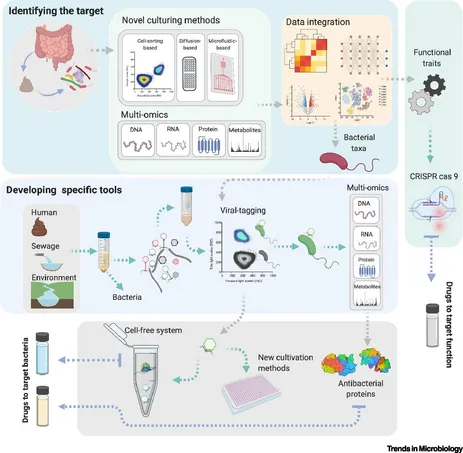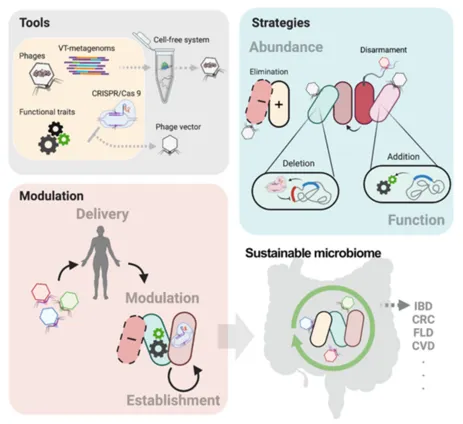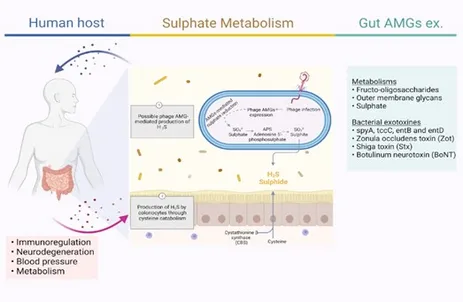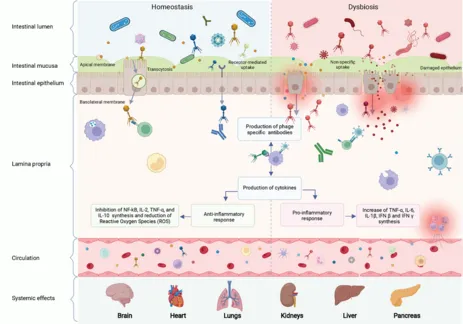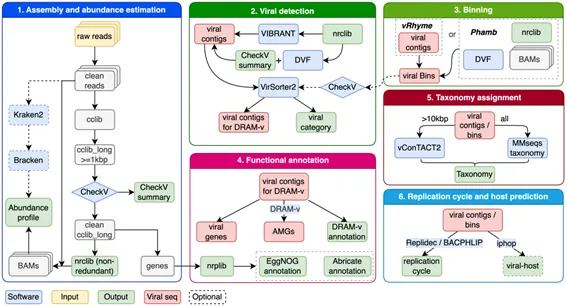Antibacterial Discovery
The antibacterial discovery project focuses on investigating the mechanisms employed by both culturable and unculturable phages to infect bacterial pathogens that have been identified by the World Health Organization (WHO) as high-priority targets for new antibiotic development. These pathogens are often resistant to existing antibiotics, posing a significant global health threat. By studying how phages, viruses that specifically infect bacteria, overcome bacterial defenses and eradicate them, the project aims to discover novel strategies for fighting these pathogens. The research is specifically focused on developing phage-derived antibacterial agents that could serve as alternatives to conventional antibiotics, addressing the growing issue of antibiotic resistance. The project is supported by an ERC Starting Grant. https://doi.org/10.1016/j.tim.2021.04.007
Fighting against co-infection in the lung
This project aims to develop phage-based therapies to combat secondary bacterial lung infections, a severe complication of viral diseases like COVID-19. We have formulated a phage cocktail that specifically targets common multi-drug-resistant pathogens such as Pseudomonas aeruginosa and Klebsiella pneumoniae. These pathogens frequently cause co-infections in COVID-19 patients and other viral lung infections. While most antibiotics are failing, phage therapy offers a promising solution for eradicating drug-resistant bacteria that cause co-infections in viral diseases. Supported by BMBF and DZL, this project seeks to advance phage treatments to reduce bacterial pneumonia and combat antibiotic resistance.

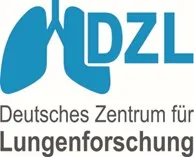
Human-Virom-Studies
This project focuses on exploring the functional and regulatory roles of phages within the human body. The human virome, which encompasses the diverse community of viruses that inhabit us, plays a critical role in shaping the microbiome, the collection of microorganisms living in and on our body. By studying how phages interact with bacterial communities, the project aims to reveal the impact of viruses on human health and disease. This involves studying how phages regulate the microbiome and how they can be used to influence microbial populations in cases of dysbiosis, where an imbalance in microbial populations is associated with different diseases, such as inflammatory bowel disease, obesity, and diabetes. Supported by DFG SFB/CRC 1371 and other funding bodies, this research seeks to harness the therapeutic potential of phages to restore balance to the microbiome in dysbiosis-associated diseases. https://doi.org/10.1093/femsre/fuac027
Phage-host relationships studies
Developing in silico, in vitro, and ex vivo tools to study the complex interactions between phages and bacteria in the human body for future therapeutic implications. This project is supported by DFG SPP 2330, EU ITN ‘Viroinf’, DFG Emmy Noether program and others. https://doi.org/10.1080/19490976.2023.2192522
